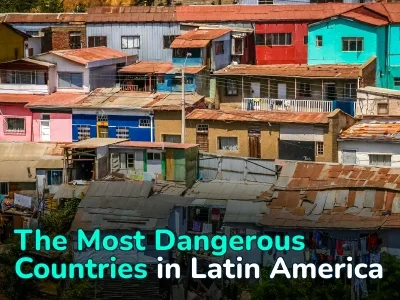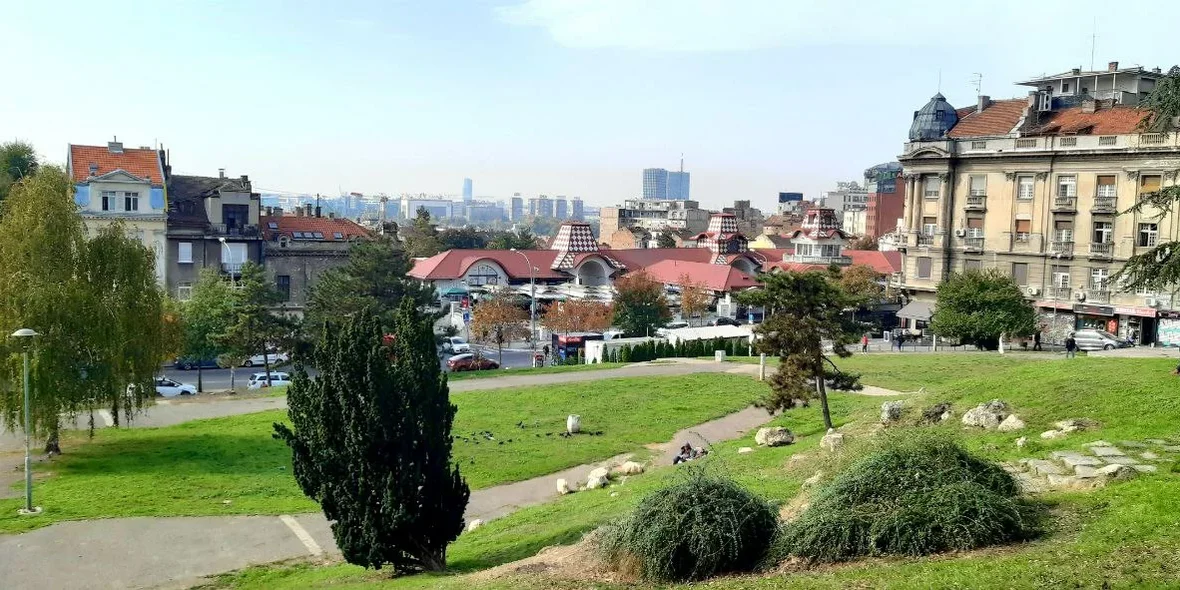
Don't listen to stories about “I moved with a hundred dollars in my pocket”. Personal experience of living in Serbia: prices, climate and the main mistakes of relocants
What is it like to live in Serbia? What do I need to know about the locals? What does buying real estate in Serbia offer? Vyacheslav told us about the standard of living, the legendary "polako", the importance of personal presence at negotiations, and the nuances of finding an apartment for rent.
“In Serbia, they live according to the principle of “hurry up without hurrying”—there is even a term for it.”
— I came to Serbia last October. At that time, I was 59 years old. I met my jubilee in Belgrade (the capital of Serbia—editor's note).
Mostly, I am busy with copywriting, running a Telegram channel, and administering groups on social networks. It's not a permanent job; I have to move from one project to another. I was involved in scripting a virtual game and managing the content of various sites. I even had experience organizing and running events in Belgrade—similar Speed Dating events.
In the first few months, apart from organizing everyday life (renting an apartment, buying all sorts of things useful in everyday life, opening a bank account), a lot of time had to be spent on legalization—researching possibilities, collecting documents, making appointments at the Department of the Ministry of Internal Affairs for work with foreigners, then again collecting missing documents, etc.
Taking into account that I chose a rather exotic way for a residence permit—accreditation of a foreign journalist—I had to start with submitting documents to the Ministry of Culture.
A lot of time is taken up by materials for the Telegram channel, but it is a pleasant hassle: visiting sights, museums, lectures, and exploring different parts of Belgrade.
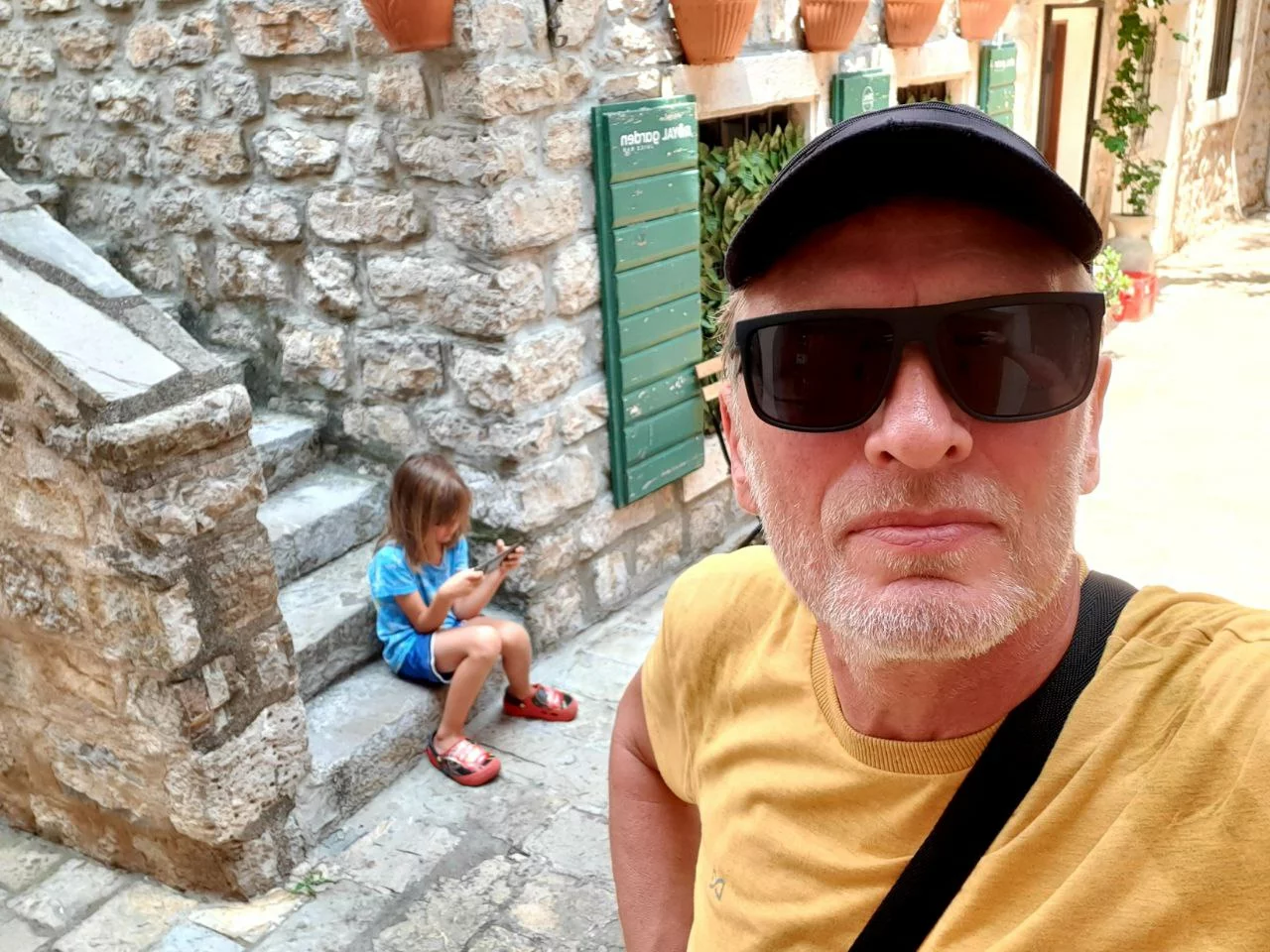
— At first, many things in Serbia look unfamiliar. For example, walking along the streets of Belgrade, you can see signs of both small entrepreneurs and large companies with the family name in their names. But in general, this is more of a global trend, just not very common in Russia.
Also in Serbia, you can often hear the legendary “Polako!”, especially from parents to their children. You can take it as wisdom—”hurry up without hurrying”. The literal translation of “slowly” is not quite accurate or complete. Rather, it corresponds to the adverbs “little by little”, and “gradually”. In meaning—thoughtfully and with dignity. In general, life without haste exists in almost all European countries, where people value not only money but also their time.
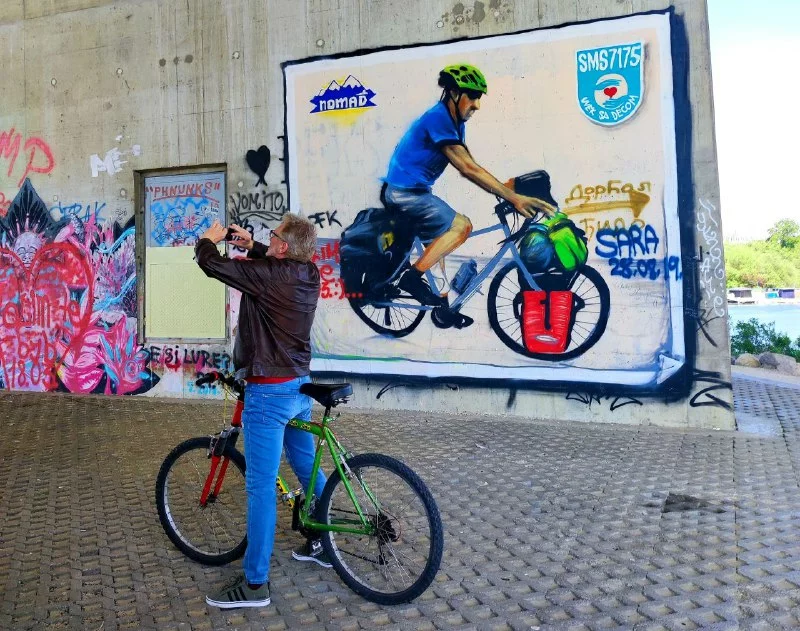
Pros and cons of living in Serbia
— I was pleasantly surprised by the friendliness of the Serbs. Someone compared vacationing in Serbia to going to the village with your grandmother, who loves you just for being you. Three examples from my own observations:
- In Belgrade, in rainy weather, drivers slow down and avoid puddles near sidewalks with pedestrians so they don't get muddy.
- Once I ran out of money on my transportation card, I tried to pay the bus driver in cash, but he just waved his hand and said, “Okay, go sit down; you don't need anything”.
- On New Year's Eve, my landlady brought me a liter bottle of homemade rakija. And for Christmas, stuffed cabbage, salads, and small cakes.
And it could go on and on indefinitely.
A little more on the plus side:
- Safety (in terms of street crime).
- Excellent climate. In summer, +23-25° (there is, of course, heat, but not for long), and in winter, -1-2°. Winter is short; summer is long.
- Relatively inexpensive life.
- Simple legalization of staying in the country. The procedure of registration of residence permits is quite easy. Plus—no Serbian language exams at any stage. And the language is quite similar to Russian. All of the old-timers with whom I have communicated have mastered it at the everyday level within six months to a year.
- There is no limit on the lower threshold of the cost of residential real estate for a residence permit. Buying an apartment in Belgrade can cost 70 thousand euros, and a house in the village can cost 100 thousand euros. Meanwhile, there are many other cities with lower housing costs.
- With the status of a temporary resident, it is easier to open Schengen to any European state. And in general, excellent prospects for freedom of movement exist: Serbia is already an official candidate for EU membership.
- Taxes are quite low in Europe. The business is developing well.
Among Serbian sights, I love the Gardos Tower and the Zemun embankments, sunsets on Kalemegdan, and in summer, a great vacation on the island of Ada Ciganlija.
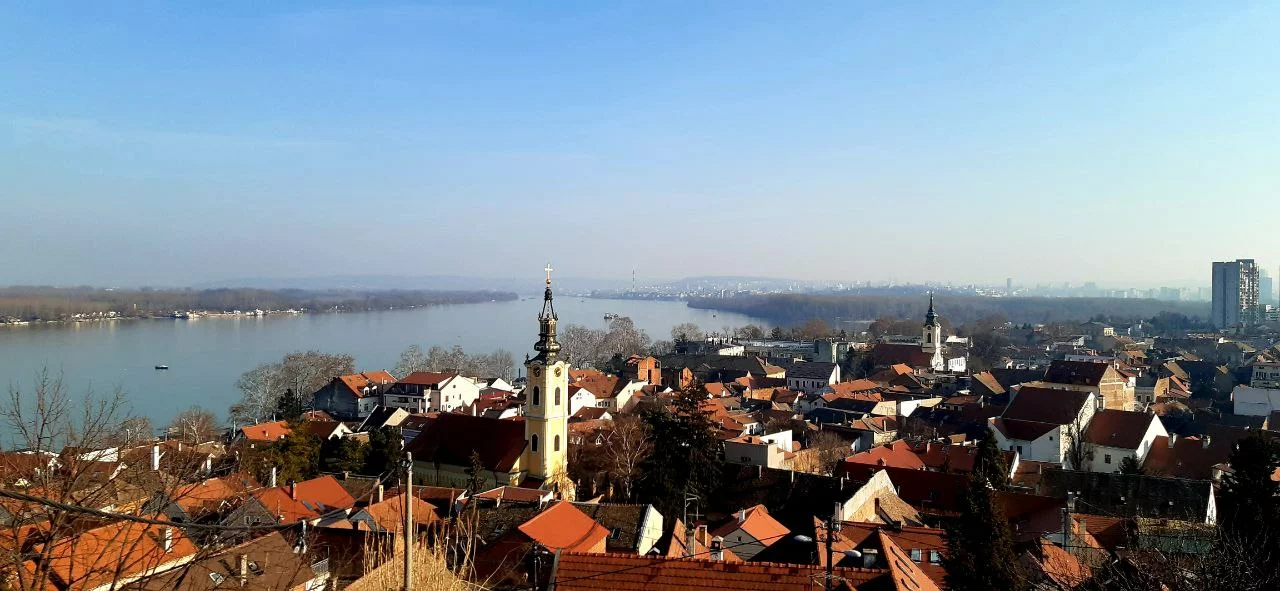
From the minuses in life, I can note the following (although I treat them calmly and philosophically):
- The lack of maintenance of the urban environment. Lack of urns, broken roads, grass sprouting through curbs and tiles, ubiquitous graffiti.
- Smog. For the first time in the winter in my Belgrade apartment, I pushed furniture away from outlets in search of the source of the smell of burned electrical wiring. Until I realized that it was sometimes carried in through the double-glazed windows from the street. Some neighbors heat their homes with stoves and fireplaces.
- Smoking is ubiquitous. Although it seems to me that the situation is changing towards a healthy lifestyle: there are places where people do not smoke. I rarely see smokers in the crowd at the bus stop—usually, they go to the side. I don't visit playgrounds, but there is no smoking in transport and elevators.
- The capital's infrastructure is criticized by re-locants: digitalization is not at the usual level, delivery is not always of high quality, transport is without air conditioning and timetables, etc.
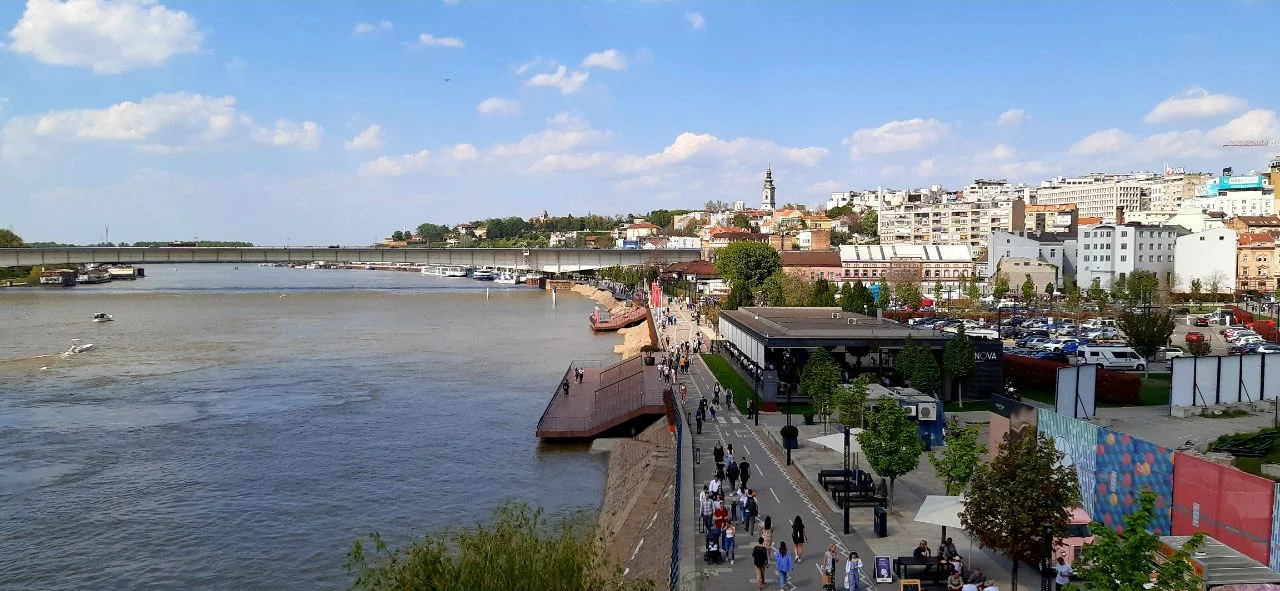
Prices, salaries, and business in Serbia
— Serbia is not a very rich country. A lot of Serbs work in the EU. But they keep coming back and rebuilding their lives in Serbia.
Local statistics give figures about the minimum wage in Serbia—€340. The average net salary is €820 (data for October 2022). The top 5 highest paid fields of activity in Serbia with average salary by industry are as follows:
1. IT industry—€1693
2. Aviation—€494
3. Scientific research—€1469
4. Film and television—€1254
5. Management and consulting—€1178
In the beginning, I started to register an LLC, but because of the half-acre of lawyers (there's a blessing in disguise), I stopped this process in time, having found a cheaper way of legalizing. Here, you cannot open a company and submit blank reports to the tax office. Anyway, you will have to pay at least 300-350 euros/month.
An income of €2000 allows you to live comfortably here. We are not talking about villas and yachts. Those who would like to live in screaming luxury will need $5,000 as a minimum. Which, you must agree, is still not so much for a European country.
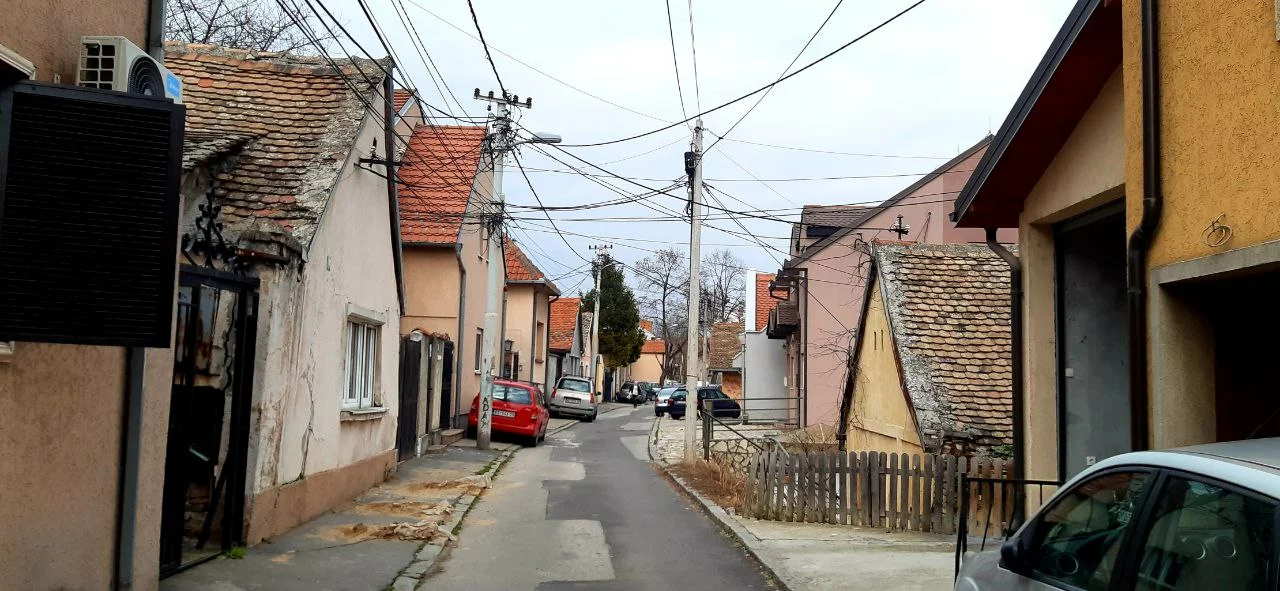
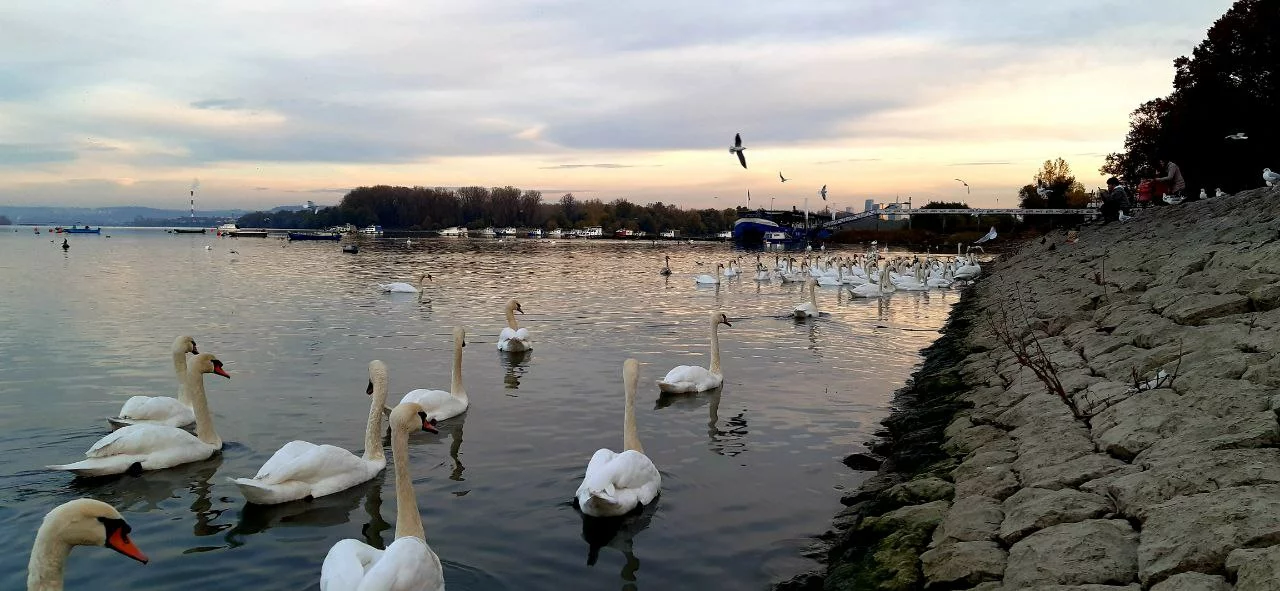
“Tax rates are the same for residents and non-residents”
— As far as taxes are concerned, Serbia looks very good in terms of the fiscal burden on individuals. Perhaps, it is even one of the leaders among all European countries.
For example, the standard income tax for individuals is only 10%.
In addition, Serbia has a progressive tax system. If the annual income of an individual exceeds the amount of three average annual salaries in the country (more than $32 thousand last year), he must pay a 10% income tax on the excess. If the income exceeds the amount of six average annual salaries (more than $64 thousand), another 15% of the excess.
In general, the taxable base of individuals in Serbia is as follows:
- Wages (from 10%).
- Self-employment (taxes for sole proprietorships—10%).
- Copyright and related rights (20%).
- Capital (on growth and income, 15%).
- Real estate (on income from it—15%).
And yes, it is important to mention tax residency. An individual is recognized as a tax resident of Serbia if any of the following conditions are met:
- the person is actually on the territory of the country for at least 183 days during a calendar year;
- the center of his/her life interests is located in Serbia.
Any of these circumstances may lead to the recognition of Serbia as such a center:
- acquisition of real estate in the territory of the country;
- residence of a family in Serbia;
- minor children studying here.
Tax rates are the same for residents and non-residents. But residents of Serbia pay tax on their worldwide income, while non-residents pay tax only on income from sources in Serbia.
Taxation in Serbia provides quite a lot of preferential options or exemptions. This is where specialist advice is needed.
“Apartment transactions in 2023 are already taking place at more sane market prices.”
— In Serbia, housing is one of the popular grounds for obtaining a residence permit. It is worth considering that foreigners are not eligible to buy agricultural land or building plots. It must be a residential property.
When choosing an object, check whether it is legally erected and officially registered. In advertisements, they are usually labeled with the appropriate Legalizovano and Uknjiženo. Self-construction can provide legal problems for years.
During the transaction, you will have to pay one of two taxes:
- when buying from a natural person, add 2.5% to the contract value—this is a tax on the transfer of absolute ownership rights;
- when buying from a legal entity—10% VAT (they often sell new buildings).
And yes, never sign contracts without consulting a lawyer.
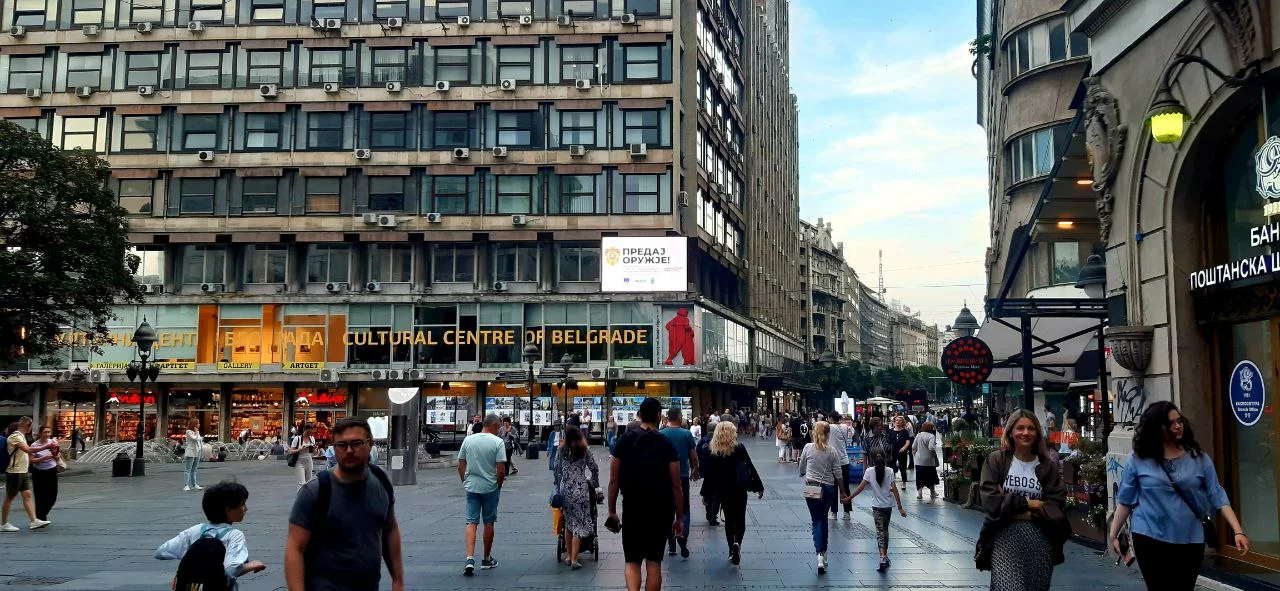
The average price of an apartment in an old building in Serbia in 2022 increased by 20% compared to 2021, while the price of an apartment in a new building increased by 16%.
In Belgrade, the average price per square meter of an apartment in a new building is €2342, while the price of an apartment in the secondary market is €1815 per square meter.
In Novi Sad, the average price of an apartment in a new building amounts to €1580, while in the secondary market, it is €1665 per square meter.
The secondary market in Niš has risen to €1195 per meter. In Kragujevac—up to €945. In Prokuplje, the average price of an apartment in a new building amounted to €637 on the secondary market—€465 per square meter.
Transactions in 2023 are already at more reasonable market prices.
“Renting remotely, without viewing, is not accepted here.”
— As for the rental market, since the spring of 2022, the price of renting has increased a lot (almost doubled). However, since March 2023, the rents have slowly but surely started to land. Already in April, it was possible to find a decent apartment in the center of Belgrade for €400-500, which was unthinkable in February. And in June, the rent decreased by almost 8% in almost all districts of Belgrade.
Depending on the area, you will have to pay extra for “utilities”. Examples of metered winter electricity costs were given by the landlords of the apartments I was able to see, ~ 15,000 dinars (€128). In my case, an average winter price of €50 was agreed upon.
When looking for an apartment for rent in Serbia, it is better to negotiate in Serbian (a friend helped me). Most people know English, but not all, and prices for foreigners can be raised. You can find interpreters in the local community.
Be sure to mention in negotiations with landlords the need to get a “white cardboard” (certificate of registration of a foreigner at the place of stay in Serbia—ed.). They should understand the hassle of renting an apartment to foreigners.
Also, an important point: they don't like to email here. Email is for exchanging phone numbers. Phone (or messenger)—to arrange a time to meet in person. Said in person, it carries more weight than written.
It's not common to shoot remotely, without viewing, here. It works differently:
1. You rent temporary housing for two weeks (I was lucky; I rented a hotel for six days).
2. You sit on a website and choose long-term options (usually renting for six months or more). Then, you agree on viewings (to have more time in the day, I rented a car, but this is optional).
3. On the spot, pay attention not only to the apartment (the reality is sometimes very different from the photos), but also to the area: whether the grocery stores are far away, where the bus stop is, how many routes run, and so on.
4. If you are not sure of your language, get an interpreter.
5. Owners are usually less fussy: “Everything is rented; sorry, I did not have time to remove the ad.” Agency: That apartment for $300 was just rented, but there is another—very good—for $500. Will you look at it? Tomorrow will be even more expensive.
6. I signed the contract with the owner without a notary or other intermediaries. But these are my risks, which I cannot recommend.
Here you can try to check in the cadastre, who is the owner of the apartment. It works every once in a while.
I can add that there are many cases when landlords do not want to part with the deposit (a deposit in the monthly amount in case of loss of quality housing). Lawyers advise getting a receipt for the money.
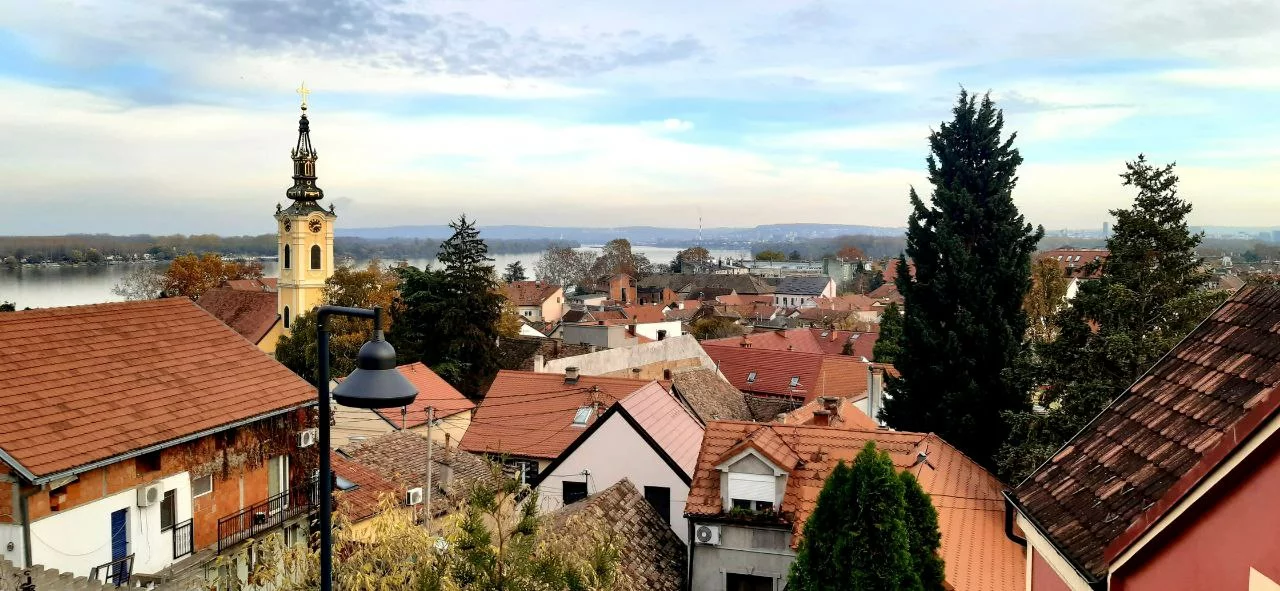
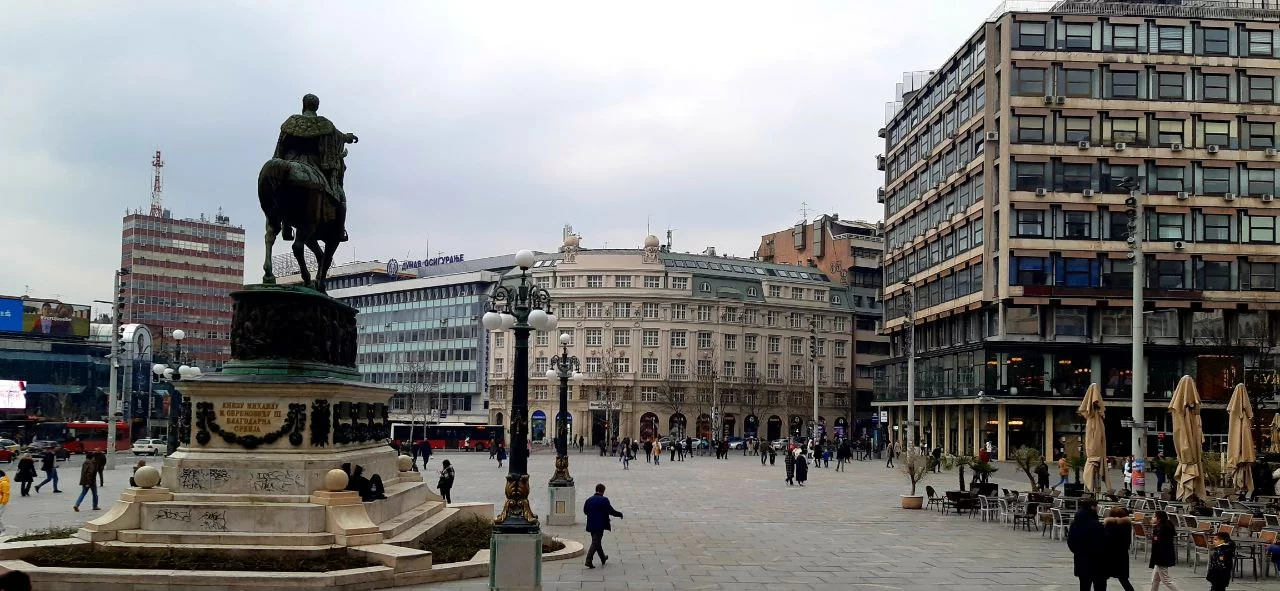
A register of the main mistakes of relocants
— I made a list of immigrant mistakes, which included not only my “joints”, but also more experienced comrades:
1. Poor language skills. In Serbia, foreign movies are not dubbed but watched in their original language with subtitles. English is compulsory in schools. Many are focused on finding work in Europe (visa-free travel for citizens). Most Serbs have an excellent command of English. You can learn Serbian over time, but English as a basic language will not fail you here.
2. Lack of basic knowledge about the country you are traveling to. Read about it. Subscribe to local blogs. I understand that it is not always possible (in the current conditions—even more so) to try to live in a new place for at least a visa-free month. But you can also get an idea of prices, people, and basic rules of behavior remotely. It would be ideal to find acquaintances here and have a guide who has lived in the country long enough. It is desirable to visit different cities and regions, but it is optional and depends on the budget and goals: active activity or quiet retirement. Even in small Serbia, there are different conditions and living standards everywhere.
3. Uncertain source of income. Explore options with work, business, and passive income. Calculate your income and determine whether it is enough to live on. In the case of a remote source, find out the possibility of a withdrawal of funds. If you are a professional in your business, look for vacancies in advance, send your resume, and go through an interview on the buzzer. You will not get a job, so at least you will know the requirements for your profession. In any case, get ready to change your usual sphere of activity; think about what else you can do (drive a car, cut hair, saw firewood, repair machinery, or look after children).
4. Incorrect calculations of your expenses. Rent, transportation, food, medical treatment, additional education, employment, legalization—add it all up and multiply it by 1.5. There are always unexpected expenses at first. After some time, savings options will open up, and expenses will become more predictable. Moving out without the proverbial “financial cushion” is an adventure, in my opinion. Don't listen to the “left with a hundred dollars in my pocket” stories. Unless you are from a bombing or earthquake zone.
5. Climate criteria when choosing a country. Don't focus on things like “sea, warmth, and cheap fruit” unless you have doctor's orders and stable security. Relaxed southern countries with seasonal tourism are suitable for downshifters or rentiers. But Germans and Irish continue to earn money away from the tropics in the “harsh” northern latitudes. The presence of the sea makes you indifferent to it very quickly, and the possibility of sleeping on the beach greatly reduces business activity.
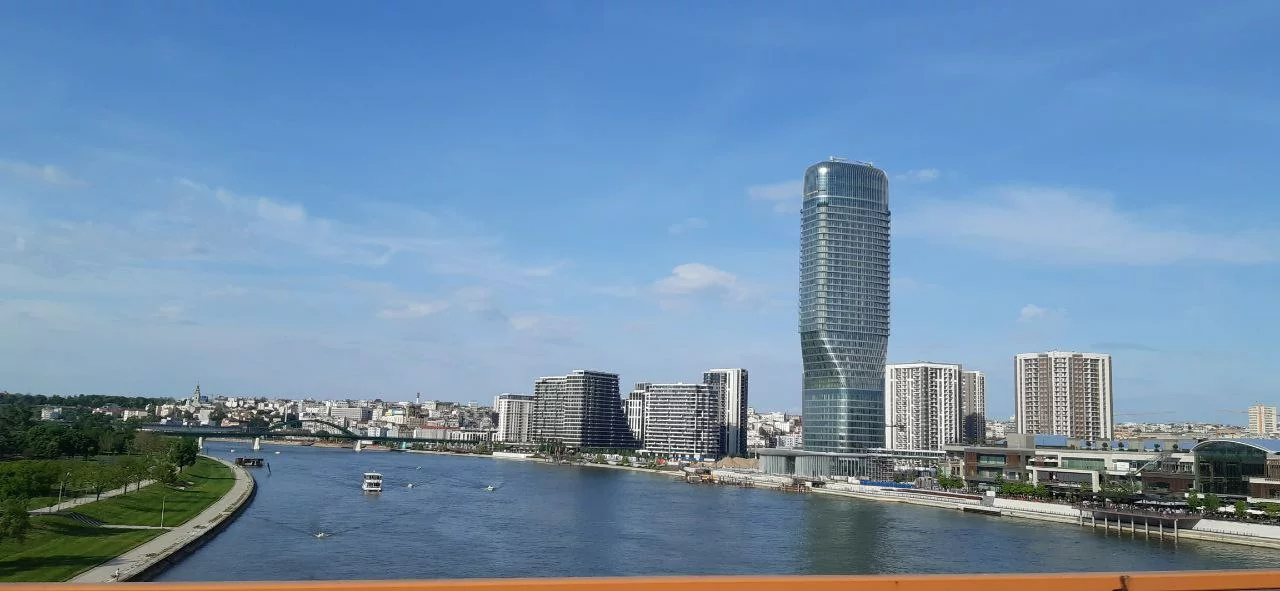
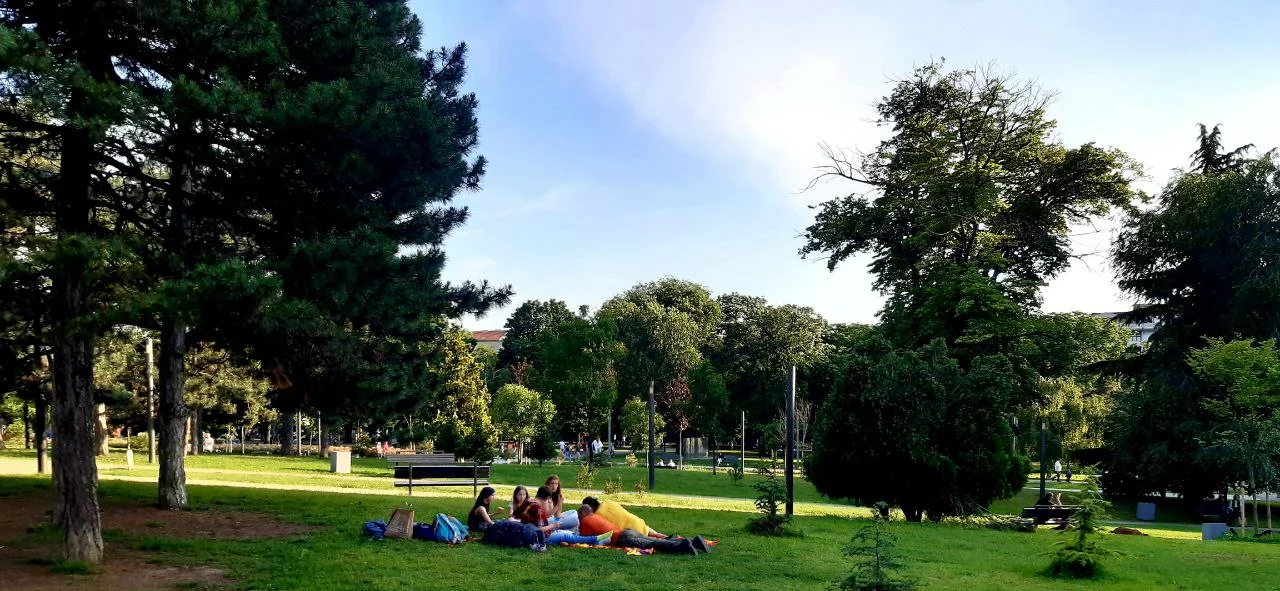
Do you want to share your personal experience of relocating and living in another country? Email us at info@realting.com. We will be happy to tell your story.
Frequently asked questions
What documents does a foreigner need to buy real estate in Serbia?
What taxes and fees are involved when buying real estate in Serbia?
Can a foreigner get a mortgage to buy real estate in Serbia?
What is the process of buying real estate in Serbia for foreigners?
Author
I am responsible for editorial work. I write expert interviews and guides.






















